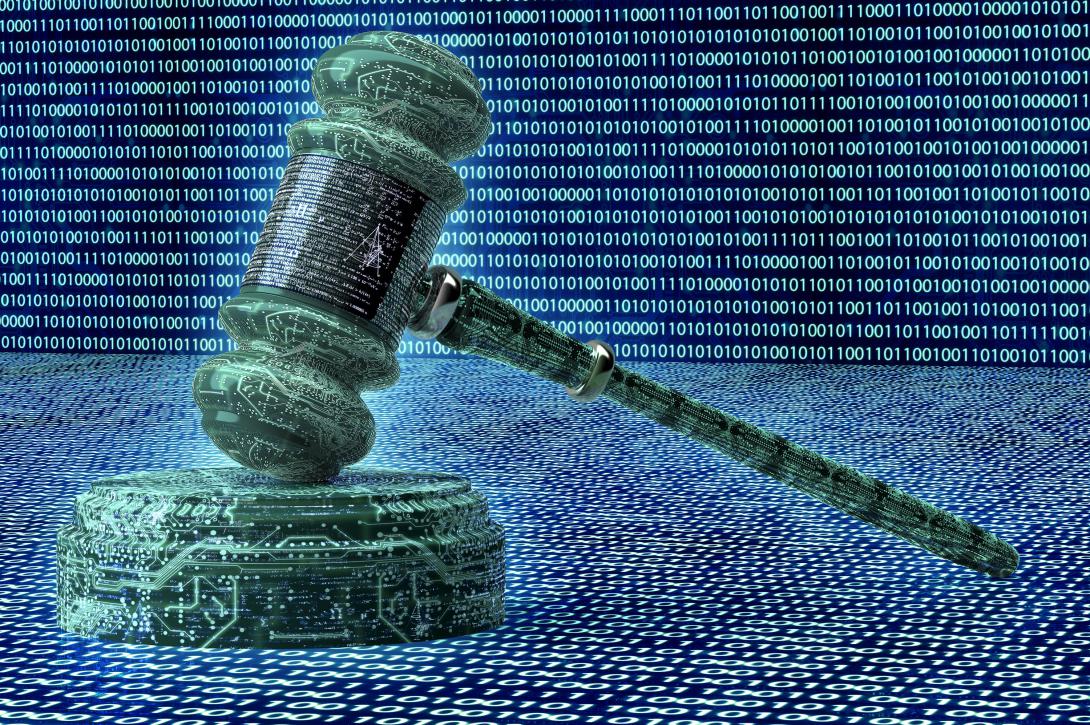Lawyers Essential to Integrated Deterrence in Cyberspace
Success in the cyber domain depends on maintaining an ability to move quickly and cohesively with key partners within the United States and around the globe, and the law is an integral component of furthering those strategic objectives, noted Caroline Krass, general counsel, U.S. Department of Defense (DoD), on the first day of U.S. Cyber Command's 2023 Legal Conference, April 18-20, 2023, at the General Jacob E. Smart Conference Center on Joint Base Andrews, Maryland.
This annual conference explores strategic and operational subjects of law and policy issues within the cyber domain. This year’s conference theme is "Integrated Deterrence: Maintaining Our Edge in Turbulent Times."
As the morning keynote speaker, Krass outlined the roles lawyers play in the cyber realm under the National Defense Strategy. The strategy focuses on deterring strategic attacks and aggression while being prepared to prevail in conflict if necessary, and a key component of the strategy is integrated deterrence, which is a holistic approach to addressing competitors across domains, across Defense Department components and with allies and partners around the world, she explained.
In the current strategic environment, she indicated, “we see our competitors in cyberspace, seeking to steal our technology, undermine our military advantages, threaten our critical infrastructure, disrupt our government and commerce, weaken our collective prosperity and challenge our democratic processes.”
Krass added that the scope, pace and sophistication of cyber activity continue to rise around the world. “For the framework of integrated deterrence, the department is countering these malign cyber activities by taking action to generate insights about the adversary cyber operations and capabilities to enable the government, industry and international partners to create better cyber defenses, to act, to deter, or when necessary, to disrupt serious cyber actors and halt their malicious activities,” she said. “Lawyers are essential to successfully achieving integrated deterrence.”
And Defense Department lawyers have a profound obligation to ensure that the department's activities are conducted consistent with applicable domestic and international law, she asserted. “A key priority for my office is ensuring not only that we follow the rule of law in our own work, but also that we, as a department, promote that rule of law around the world. Working with our allies and partners … requires a recognition that we might at times be subject to different legal obligations, or adopt different interpretations of certain legal rules, while ensuring that we remain aligned on core issues wherever possible.”
In addition to international law, Defense Department lawyers must also be mindful of the First and Fourth Amendments. For example, the First Amendment protects rights to free speech but also protects the rights of citizens to receive information from foreign sources, and those rights must be considered when countering foreign disinformation campaigns.
“The First Amendment is of course foundational in protecting free speech in the United States. To combat efforts by our foreign adversaries to use disinformation and other influence operations in their attempts to further their own interest and to undermine our most cherished values, we must remain steadfast to the First Amendment as a critical touchstone,” Krass said.
Additionally, the Fourth Amendment protects Americans against unreasonable searches and seizures and can come into play when agencies collect in the cyber realm. “As we evaluate cyber operations from a legal perspective, sometimes the Fourth Amendment will come into play. The Fourth Amendment protects the right of the people to be secure in their persons, houses, papers and effects against unreasonable searches and seizures and limits the circumstances under which warrants can be issued,” she explained. “There's sometimes a chance that activities that are targeting a foreign adversary will result in an incidental acquisition of, for example, communications to which a U.S. person is a party.”





Comments